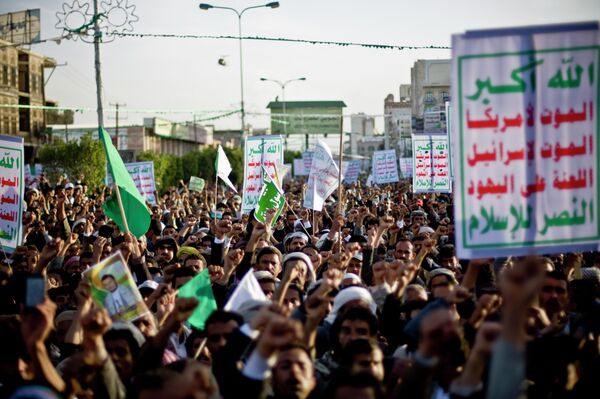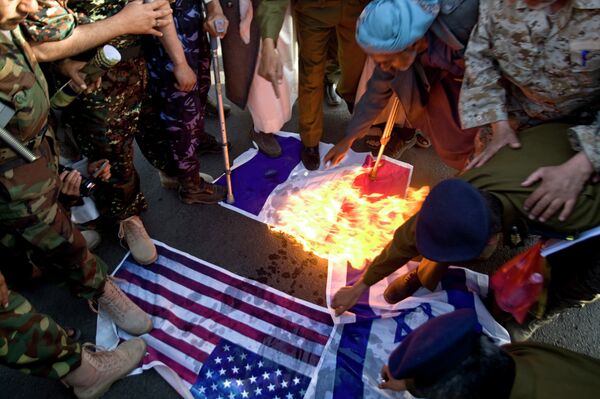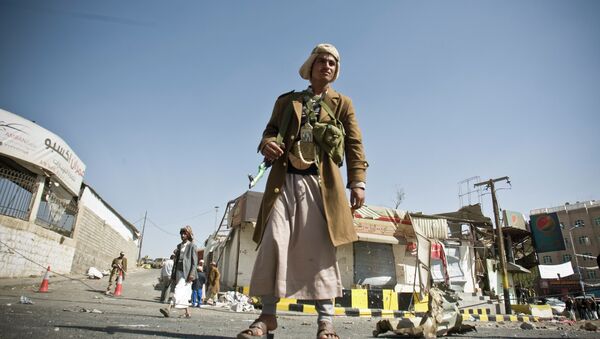Just hours after affirming its commitment to continue counterterrorism operations in Yemen despite the recent overthrow of its U.S.-backed government, officials close to the operations said efforts to combat al-Qaeda in the Arabian Peninsula (AQAP) will be suspended.
They said the Shiite rebels, known as Houthis, who forced the ouster of President Abd-Rabbu Mansour Hadi on Thursday and seized the capital, now control much of the security services that provided intelligence for the U.S. drone campaign.
This is a major setback for the U.S.' campaign against AQAP, which claimed responsibility for the attacks in Paris earlier this month that claimed 17 lives.

The Houthis are somewhat of a wildcard as far as U.S. intelligence is concerned. The rebel group from northern Yemen wants to be rid of AQAP in the country, but also marches under the slogan "God is great. Death to America, death to Israel," according to Letta Tayler, a senior researcher on terrorism at Human Rights Watch. They are suspected of having the support of Iran and perhaps of the previously ousted Yemeni President Ali Abdullah Saleh.
Prior to this official suspension, the situation in Yemen had already deteriorated and hampered intelligence gathering capabilities and U.S.-led, Yemeni-manned raids against AQAP targets. Although the U.S. carried out 107 drone strikes while Hadi was in power, there has not been a known strike there since early December.
“The chaos has aided al-Qaeda,” a senior U.S. official told the Post. “There’s no question in our mind that al-Qaeda has gotten a breather.”
“The agencies we worked with. . . are really under the thumb of the Houthis. Our ability to work with them is not there.”

President Obama had pointed to the low-cost, low-personnel operations in Yemen as a model for fighting terrorism, and specifically referenced the strategy in his plan to combat the spread of ISIL.
"This strategy of taking out terrorists who threaten us, while supporting partners on the front lines, is one that we have successfully pursued in Yemen and Somalia for years," Obama said in September.
Though the embassy in Sana’a is slated to remain open for the time being, a senior official said that the CIA and the State Department will begin removing personnel and the removal of military advisers and trainers is under consideration.
The question of whether operations will resume in cooperation with the Houthis remains open.
“We wouldn’t be averse” to talks, an official told the Post. “We’re not against the Houthi movement.”


